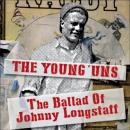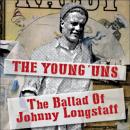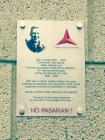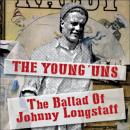On the fourth of October, 1936, I was only a lad of 16
But I stood beside men who were threescore and ten and every age in between
We were dockers, and teachers, busmen, engineers, and boys with no jobs to do
We were women and children, equal in union, Atheists, Christians, and Jews
And we had so much to lose.
For with Hitler in Germany, Franco in Spain, we knew what fascism meant
So when Mosley came tramps in, denouncing the Jews, to the east end of London we went
For I’d heard much refugees who’d fled over the seas, Germans, Italians, and Jews
And I knew their despair for what they’d seen there, and I couldn’t let them be abused
We had so much to lose.
Now, 3,000 fascists, their uniforms black, had set out to march on that day
And 6,000 policemen intended to greet them, by making clear the way
But we were there ready, and nerves they were steady, 100,000 en masse,
And we planted our feet along Cable Street, and we sang, ‘they shall not pass!’
We sang, ‘they shall not pass!’
Then all us young lads, we were sent to the side streets, to stop the police breaking through
And with swift hands we made strong barricades out of anything we could use
And they came to charge us, but they couldn’t budge us, with fists, batons, and hooves
With as good as we got, we withstood the lot, for we would not be moved,
We would not be moved.
And yes, there was violence, and yes, there was blood, and I saw things a lad shouldn’t see
But I’ll not regret the day I stood, and London stood with me
And when the news spread the day had been won, and Mosley was limping away
There were shouts, there were cheers, there was songs, there was tears, and aye, they’re borne to this day
And we all swore then, we’d stand up again, for as long as our legs could,
And that when we were gone, our daughters and sons would stand where we stood
Was the first time I’d heard two tiny words said by every woman and man
Now I’ll say them still, and I always will: No pasarán!
But I stood beside men who were threescore and ten and every age in between
We were dockers, and teachers, busmen, engineers, and boys with no jobs to do
We were women and children, equal in union, Atheists, Christians, and Jews
And we had so much to lose.
For with Hitler in Germany, Franco in Spain, we knew what fascism meant
So when Mosley came tramps in, denouncing the Jews, to the east end of London we went
For I’d heard much refugees who’d fled over the seas, Germans, Italians, and Jews
And I knew their despair for what they’d seen there, and I couldn’t let them be abused
We had so much to lose.
Now, 3,000 fascists, their uniforms black, had set out to march on that day
And 6,000 policemen intended to greet them, by making clear the way
But we were there ready, and nerves they were steady, 100,000 en masse,
And we planted our feet along Cable Street, and we sang, ‘they shall not pass!’
We sang, ‘they shall not pass!’
Then all us young lads, we were sent to the side streets, to stop the police breaking through
And with swift hands we made strong barricades out of anything we could use
And they came to charge us, but they couldn’t budge us, with fists, batons, and hooves
With as good as we got, we withstood the lot, for we would not be moved,
We would not be moved.
And yes, there was violence, and yes, there was blood, and I saw things a lad shouldn’t see
But I’ll not regret the day I stood, and London stood with me
And when the news spread the day had been won, and Mosley was limping away
There were shouts, there were cheers, there was songs, there was tears, and aye, they’re borne to this day
And we all swore then, we’d stand up again, for as long as our legs could,
And that when we were gone, our daughters and sons would stand where we stood
Was the first time I’d heard two tiny words said by every woman and man
Now I’ll say them still, and I always will: No pasarán!
inviata da Dq82 - 13/4/2018 - 15:58
×
![]()







Strangers
Scava nella memoria libertaria “Cable Street”, imperniata sul coraggio di Johnny Longstaff, sedicenne conterraneo del trio, il quale prese parte alla famosa marcia di londinesi che sfidò la polizia in appoggio agli ebrei dell’East End, opponendosi alla feccia fascista in camicia bruna di Oswald Mosley nel 1936. Johnny combatté in Spagna dalla parte repubblicana e poi non cessò mai di essere in prima linea nelle rivendicazioni sociali. È il passato, ma è anche un monito per la realtà sempre più oscura del nostro presente.
blogfoolk.com
Told through the words of 16 year-old Stockton-born Johnny Longstaff who was one of an estimated 100,000 people who defied the police to stand in solidarity with the Jewish people of London’s East End, blocking the route of a British Union of Fascists march on October 4, 1936.
theyounguns.co.uk
2019
The ballad of Johnny Longstaff
Any Bread? - Carrying the Coffin - Hostel Strike - Cable Street - Robson’s Song - Ta-Ra to Tooting - Noddy - The Great Tomorrow - Ay Carmela - Paella - No Hay Pan - Trench Tales - Lewis Clive - David Guest - Over the Ebro - The Valley of Jarama - Trespassers (da tiny notes)